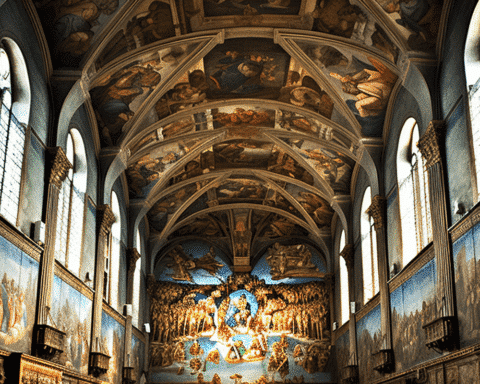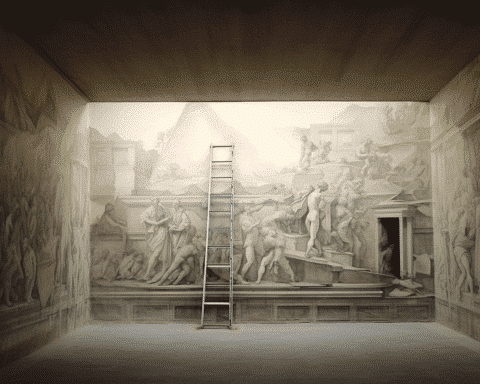The Florida Department of Education has declared the “artistic” and “historical value” of Michelangelo’s David amidst controversy surrounding the sculpture’s display in a Florida school.
Last month, a Florida principal was forced to resign after showing an image of the Renaissance sculpture to sixth-graders. The issue was not with David, but with the failure to warn parents about their children seeing the “potentially controversial” artwork.
The Charter School Adheres To The Model Of “Classical Education Curriculum.”
The Tallahassee Classical School, where the incident occurred, follows the “classical education curriculum model,” which stresses the “centrality of the Western tradition.” The school aims to provide students with a classical education that focuses on the liberal arts and humanities, including history, literature, and philosophy.
Republican lawmakers in Florida have been pushing to mandate classical education courses in the secondary school system, arguing that public education has in recent years focused too heavily on social issues of race and gender identity.
“We’re not going to have courses from the College Board,” said Barney Bishop III, the chair of the school’s board, in an interview with Slate. The Florida charter school has no plans to teach courses related to 1619 or CRT, prioritizes parental rights over student rights, and questions the idea of teachers as sole experts with all the knowledge.
Hillsdale College Ends Relationship with Florida Charter School
The drama has resulted in the end of the relationship between the Tallahassee Classical School and Hillsdale College, a Michigan Christian college that provides a classical education curriculum. The school will no longer be able to use Hillsdale College’s curriculum, as its license was “revoked and will expire at the end of the school year,” according to a spokesperson for the college.
Florida Department of Education Clarifies State Law
The Florida Department of Education has confirmed that currently, the state government has no power to prevent the teaching of Renaissance art. According to Alex Lanfranconi, the communication director for the department, Florida encourages instruction on the classics and classical art and would not prohibit its use in instruction.
The controversy has sparked a debate over what constitutes “age-appropriate” education, particularly in the American South, where conservative lawmakers have been pushing back against what they see as a focus on progressive issues in public education.
State law in Florida requires schools to provide “an integrated curriculum that is balanced, nonindoctrinating, and respectful of all persons and their views.” The law also requires schools to provide “accurate, factual, and objective” instruction.
The Future of Classical Education in Florida
The controversy surrounding Michelangelo’s David has highlighted the ongoing debate over the role of classical education in Florida’s public school system. Proponents argue that a classical education can provide students with a strong foundation in critical thinking and the humanities. Critics argue that a focus on the Western canon can marginalize students from diverse backgrounds and ignore important contributions from non-Western cultures.
Despite the controversy, it appears that the push for classical education in Florida’s public schools will continue. Legislation has been introduced by Republican lawmakers that would mandate high school students to take a course on the “Founding Principles” of the United States, covering instruction on the Declaration of Independence, the Constitution, and the Bill of Rights.
As the debate continues, it remains to be seen how Florida’s public school system will address the competing demands of a classical education curriculum and the need for an inclusive and diverse approach to education.




